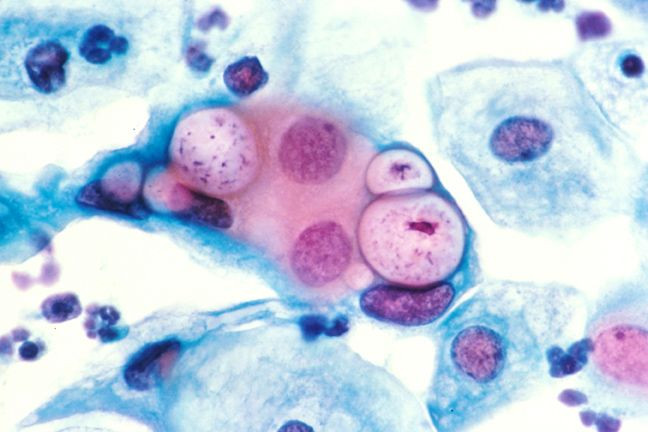Texas Chlamydia Outbreak 2015: High School Wants To Change Sex-Ed Curriculum After STI ‘Epidemic’

A high school in a small Texas town is considering changes to its sex education curriculum after 20 out of 300 students there tested positive for chlamydia. It's a rate that the U.S. Centers for Disease Control and Protection (CDC) has said is of “epidemic proportions.”
The sex ed curriculum at Crane High School in western Texas teaches abstinence, which “evidently ain’t working,” Jim Rumage, superintendent for the Crane Independent School District, told KFOR, a local TV channel on Tuesday. He added, “We need to do all we can, although it’s the parents' responsibility to educate their kids on sexual education.” Parents were informed of the outbreak through a letter sent home in early May.
School officials now want the three-day sexual education curriculum to include a discussion of sexually transmitted infections. The school board is scheduled to vote on these changes May 19.
According to the school’s 2014-2015 handbook, state mandates regarding sexual education stipulate that the school “present abstinence from sexual activity as the preferred choice of behavior in relationship [sic] to all sexual activity for unmarried persons of school.” It also must "emphasize that abstinence is the only method that is 100 percent effective in preventing pregnancy, sexually transmitted diseases, and the emotional trauma associated” with youth sexual activity.
Critics of abstinence-only sex education argue that the system is ineffective and fails to teach youth properly about how to protect themselves. In 2004, a congressional report determined that 80 percent of abstinence-only sexual education programs in the United States presented information that was “false, misleading or distorted,” the Guardian reported. Yet in 2006, 87 percent of high schools in the United States taught students that abstinence was the best way to avoid becoming pregnant or acquiring sexually transmitted infections, the Guttmacher Institute found.
Chlamydia is a sexually transmitted infection that can be cured with antibiotics, according to the CDC. If left untreated, it can cause permanent damage to women’s reproductive systems.
© Copyright IBTimes 2025. All rights reserved.





















